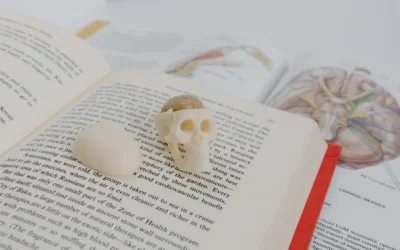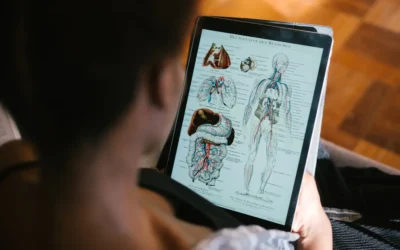Pursuing a career as a doctor requires a lot of work, effort and commitment, but medicine is arguably one of the most satisfying and rewarding careers out there.
Studying Medicine in the United Kingdom is a particularly special experience. Home to some of the most prestigious research institutes in the world, as well as an assortment of ground-breaking teaching hospitals, the UK’s prominence in medical research and clinical practice is recognised across the globe.
The National Health Service (NHS) – the governmental body that regulates healthcare in the United Kingdom – is constantly looking for talented junior doctors, as well as expert physicians and researchers.
We’ve put together this guide to help you understand how to successfully pursue a career as a doctor in the UK. Written by a practising junior doctor, here is our step-by-step guide so you can boost your medical school applications, and prepare for a successful career in medicine.
Educational Requirements to Become a Doctor in the UK
1. Earning Your A-levels, International Baccalaureate or Equivalent
The UK operates a strict selection process for admission to medical school so it’s important to prepare as best you can.
The first step is to complete your A-levels, International Baccalaureate or an equivalent qualification. Chemistry, Biology, Physics and Mathematics are all helpful subjects to focus on if you’re planning to apply to medical school.
A strong performance in these subjects will give you a solid foundation to build upon, and give you the best possible start to your career in Medicine.
2. Applying to University to Study Medicine
The application process for UK universities is organised through an online portal called UCAS. You can apply to five universities so make sure to research the best universities for a Medicine degree.
For a successful application, you’ll need to write a personal statement that demonstrates:
- Your passion and interest for medicine
- Your reasons for applying to your chosen university to study your chosen course
- Your strengths and experiences that will allow you to succeed
You’ll also need a teacher or tutor to provide a reference and, depending on the course you’re applying to, you may need to sit an entrance exam. If your application meets the course requirements, you’ll be invited for an interview.
Different universities have different entry requirements so you should familiarise yourself with the requirements of each individual institution you’re intending to apply to.
There are three different entrance exams for Medicine: the UCAT, the BMAT and the GAMSAT. They’re all completely different in format, sat on different days, and carry different application deadlines.
Most medical schools in London require you to sit the UCAT, whilst Oxford and Cambridge Universities currently require the BMAT, and St George’s Medical School requires the GAMSAT.
NB: It’s important to note that the BMAT is being phased out for 2024 entry. Keep an eye on the OxBright blog to find out the latest BMAT news.
It’s also a good idea to consider a range of extracurricular activities and medical work experience to strengthen your university applications and boost your chances of securing a spot.
A medicine summer school – like the Oxford Scholastica Academy Medicine summer school – is an excellent way to start building experience and developing relevant skills ahead of university.
3. Completing Your Training in Medicine
Medical school in the UK is divided into a preclinical and a clinical phase. The preclinical phase usually lasts for two or three years, with the clinical phase lasting three years. Again, different universities will structure their medical degrees differently, sometimes giving students the chance to intercalate a Bachelor’s degree in a subject of their choice.
Some medical schools offer clinical experience, alongside lectures and seminars early in the programme during the preclinical phase. Other universities, like the University of Cambridge and the University of Oxford, follow a more traditional split between the two phases.
Clinical placements are a very important aspect of UK medical schools. These are work experience placements in the local teaching hospital attached to your university. In these placements, you’ll have the opportunity to gain hands-on experience with patients, as well as the unique chance to shadow world-leading professionals in the medical field.
Medicine is a hugely regulated profession – fortunately! – so performance at medical school is closely monitored by the university. Nothing to fear, but something to be mindful about!
Working hard is important, and behaving professionally and respectfully is paramount. Always remember, even as a student, you’re representing the medical profession!
Professional Life as a Clinician
1. Enrolling in the Foundation Programme
Following medical school, recently graduated junior doctors will enter the Foundation Programme. The Foundation Programme is unique to the UK’s clinical training. In some countries, like the US, it’s referred to as an internship, whereas in other countries a degree directly qualifies you for clinical practice.
As of 2023, the application process to the Foundation Programme is not competitive. Students provide their preferred locations and an automated algorithm allocates students based on preference.
The Foundation Programme ensures that recent medical graduates can transition safely from medical school to unsupervised practice. It lasts for two years, and new doctors have the opportunity to rotate between different specialities, work in different settings – like a hospital, general practice, or in the community – and expand their educational curriculum needed for speciality selections.
2. Selecting Your Speciality
There are a variety of medical specialities to choose from, and applying to speciality training is highly competitive, especially in high-demand areas like London.
Each speciality has its own defined curriculum of competencies and experiences that you’ll need to complete by the time you finish your training. Some people think this is a fantastic opportunity, whilst others would prefer to have more flexibility to pursue other interests.
Nevertheless, as a clinician in the UK, you’ll have lots of opportunities to complete cutting-edge research or to take on leadership roles!

3. Earning Your Professional Registration and Licensure
The General Medical Council (GMC) is the principal manager of every doctor practising in the United Kingdom. It’s an independent governing body that upholds patients’ safety, and ensures that clinicians are safe, competent and up to date with training.
Unique to the UK, doctors must undergo either a yearly, or three-yearly, process to renew their licence to practise medicine. They must then provide the GMC with the appropriate evidence to prove their competence.
To sum up, medicine is a rewarding and esteemed career to pursue but doctors are expected to work for it! The academic requirements are intense, and the foundation training is demanding.
The UK provides an amazing environment to study Medicine, train as a doctor and work as a specialist. If you’re considering applying to medical school and pursuing a career as a doctor, the Oxford Scholastica website has a wealth of resources to help boost your university applications and prepare for your future career.
We wish you the best of luck in your application and your future life as a doctor!

By Diego Balassini
Diego is a practicing junior doctor, having graduated from Cambridge University, and Barts and The London School of Medicine. His undergraduate thesis focused on cancer biology and therapeutics. He is planning a career in reconstructive and plastic surgery, hoping to draw together innovations from tissue bioengineering, regenerative and stem cell research.





